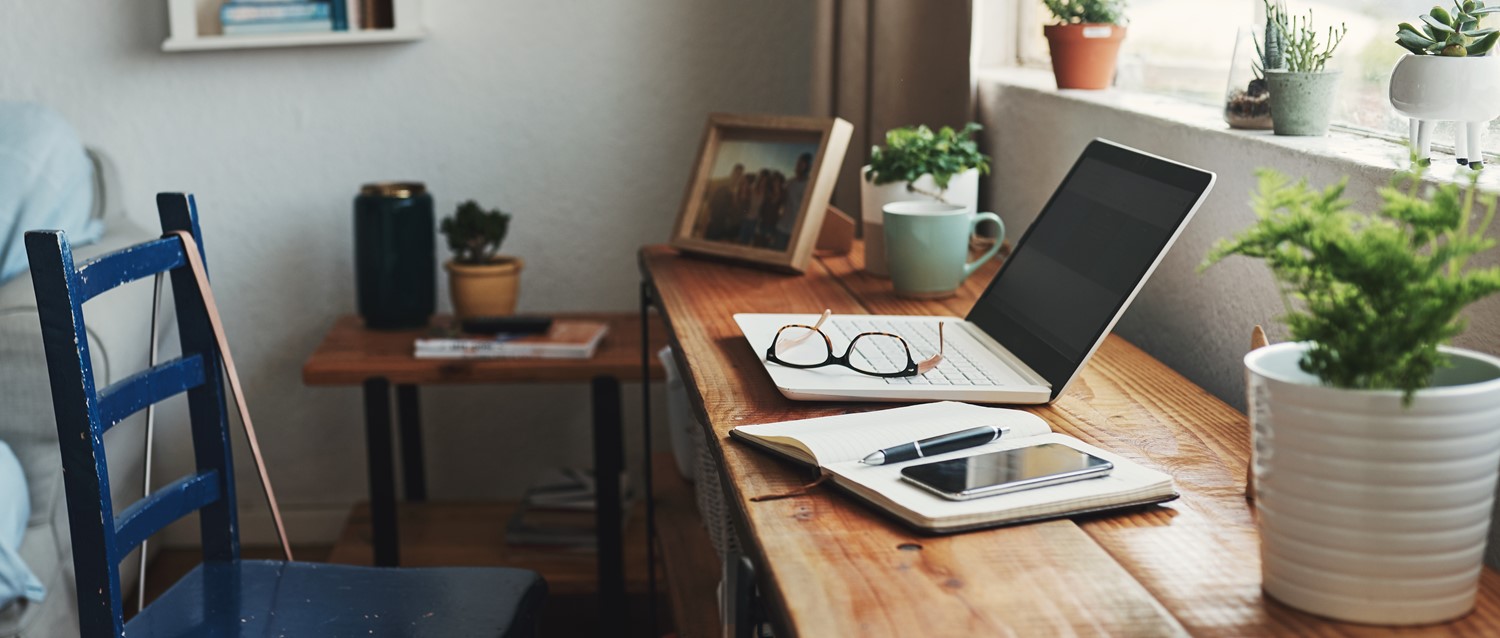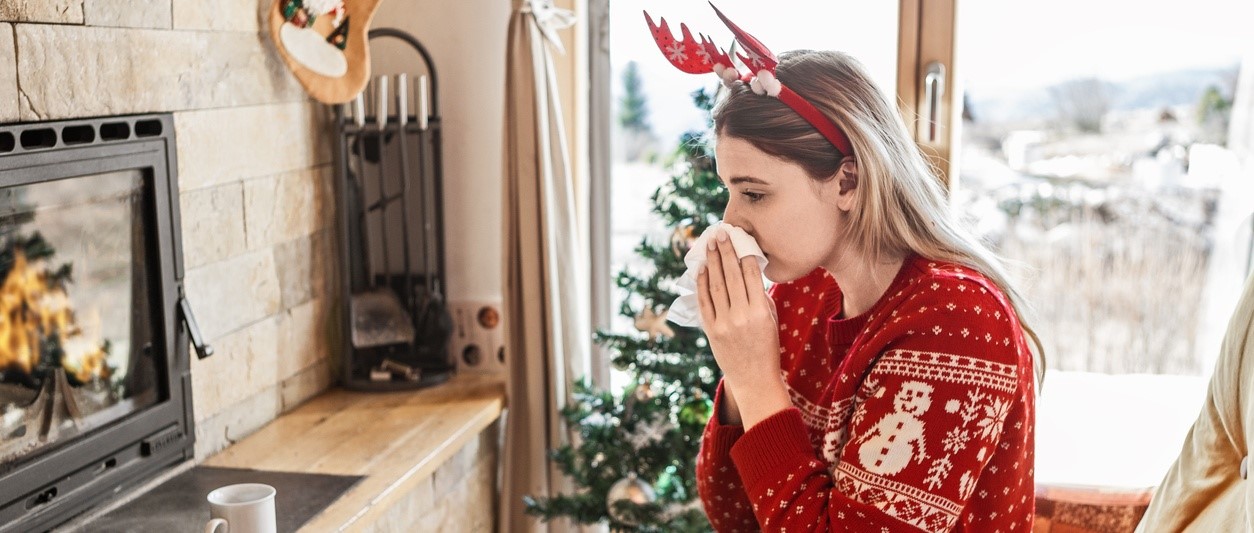
How to stay healthy while working at home
Peer reviewed by Dr Sarah Jarvis MBE, FRCGPLast updated by Abi MillarLast updated 18 May 2021
Meets Patient’s editorial guidelines
- DownloadDownload
- Share
- Language
- Discussion
Many of us are now working from home in the midst of the coronavirus pandemic, which can sometimes be easier said than done. The following tips will help you stay healthy and happy and make the most of the experience.
In this article:
Video picks for General information
Continue reading below
A blessing and a curse
In the past, when I told people I worked from home, it tended to polarise reactions. Some people would look at me wistfully and say that sounded like the dream. What could be better than eliminating your commute, taking naps whenever you wanted and joining conference calls in your pyjamas?
Others would say, "Oh, I could never concentrate at home." They craved company and structure, and maybe didn't trust their willpower against the seductions of daytime TV.
I found myself agreeing with this second camp. After a few years of working from home and coffee shops, I joined a shared workspace with a group of like-minded freelancers, and instantly saw my productivity skyrocket.
However, in the midst of the coronavirus pandemic, the usual considerations didn't apply. For working age adults, offices and workspaces are where we make most of our contacts, and are therefore a major route of viral transmission. It's no wonder that the government advised us at the peak of the pandemic not to leave our homes unless absolutely necessary.
Even as we ease our way out of lockdown, it is likely that many of us will continue to work from home at least part of the time. Many companies have realised that they don't need as much expensive office space, and that their company can be just as successful (and staff as productive) without being physically overseen.
That means that for millions of us home-cooking our lunches, being distracted by our pets, and wondering whether we can re-purpose our chest of drawers as a standing desk, are here to stay. This can pose some challenges if you're not prepared - a finite period of home-working might allow you to focus on the advantages, but the longer-term reality can throw the down sides into sharp relief.
"Lack of interaction with colleagues, no structured breaks and the distractions of being on your home turf can quickly turn your working from home dream into a nightmare," says Tara Mestre, a health and well-being specialist. "But there are some useful approaches that will help you develop an effective working from home strategy, maintaining peace and balance in the home."
Setting boundaries and scheduling time
Back to contentsFor any of us who are struggling here, the first and most important point is to set boundaries. All too easily, the division between work and home life can get blurred.
"It's about actively taking measures to create a clear divide - for example, creating your own work space even if you don't have access to a desk," says Dr Elena Touroni, a consultant psychologist and co-founder of The Chelsea Psychology Clinic. "This means you start to associate one area of your home with work and the other with relaxation."
She adds that boundaries aren't just about space - they're about behaviours too. For example, you might choose not to take work calls past 6 pm, and resist the urge to check your emails from bed.
"Commit to making the divide between home and work as clear as possible," she says. "You should also schedule some 'me time' - this can be as simple as creating a nice morning routine or stepping away from your desk to do a 10-minute mindfulness meditation session to help you stay grounded. Make sure you take the time out to do things that are just for you."
Andrew Scobie of Sensée, a specialist in home and flexible working, suggests focusing your work-related activities to one room of the house if possible, closing off that room at the end of the working day.
"Personally, I will immediately make a meal as soon as I have finished work, providing the opportunity to switch off naturally and unwind. Walking the dog is also a great way of imposing a boundary that psychologically tells you the working day is finished," he says.
You might even go one further and impose a schedule, blocking in the hours you'll work and the breaks you'll take. The idea is to ensure that work doesn't creep into leisure time and vice versa.
"Ensure you have a start and end time to work to, so you're not tempted to take a lie-in, get caught up with daytime TV or carry on working into the evening," says Victoria Massey, a health coach who works from home, helping young mothers regain their confidence. "It's also been shown to help with productivity if you're 'ready' and dressed for work. You'll find you'll be more productive than if you're sitting at home in slouchy, relaxing clothes."
If you're worried about distractions, Mestre recommends trying one of the many apps that snooze your access to non-work-related websites and social media. She adds that if you have kids at home, you can keep them occupied with audiobooks, educational cartoons, documentaries, and arts and crafts. (Unfortunately, kids don't come with a snooze button.)
Continue reading below
Cultivate healthy habits
Back to contentsIf you're working from home, it's all the more important to factor some exercise into your day - whether that be leaving your house for a walk or following a yoga YouTube tutorial from your front room. If you had previously been commuting on public transport, you'll probably miss having an excuse to break up your day and go for a walk. This means keeping active, in whatever capacity you can, will be vital to your physical and mental health.
It's all too easy to slip into bad eating habits while you're working from home, in constant reach of your fridge. Make sure you have a supply of healthy snacks (ideally placed at the front of the fridge so you're more inclined to reach for them) and stock up on high-protein, low-GI foods that can help you feel full for longer. If you're prone to mindless grazing, it might be a good idea to check in with yourself before eating. Are you really hungry or are you feeling bored or emotional? And if it's the latter, might there be another way to deal with your feelings instead?
Avoiding isolation
Back to contentsThe other major issue many people have reported during the pandemic is a sense of isolation. Especially if you're used to interacting with colleagues, being stuck by yourself can often have a detrimental impact on mood.
"As human beings, we need connection and if we're working from home we might need to work harder to find that connection in different ways," says Dr Touroni. "Otherwise, it's likely to give rise to mental health difficulties such as anxiety and depression."
With a view to getting around this problem, she suggests video conferencing, regular check-ins with your team, and instant messaging.
"Keep checking in with friends and family too - remember more people are still working from home now than before the pandemic," she says. "Consider goals you want to achieve or activities you can do from home in your free time so you can use that time productively - eg, learning a new skill online, reading about a new topic etc."
The four devolved nations of the United Kingdom are all opening up their restrictions at slightly different rates, but all have now reached the stage of allowing people to meet socially outdoors. If you're not getting the human contact you used to from work, the chance to socialise again - albeit in a COVID-19 safe manner - can help enormously in bridging the gap.
Whether you're delighted to be home working longer-term, or are apprehensive at the prospect, it's something many of us will soon get good at. However, it's important not to beat yourself up if you do find yourself in your pyjamas at lunchtime. Your strategy will come down to personal preference, and there's bound to be some trial and error involved along the way.
Patient picks for General information

COVID-19
COVID-19 - coping with loneliness this Christmas
Christmas can be a difficult time. Although many of us see the holiday season as a time to spend with family and friends, it can also exacerbate feelings of loneliness. Not only are we reminded of the loss of loved ones, the pressure to be festive can be overwhelming.
by Lydia Smith

COVID-19
Is it COVID-19 or flu this winter?
Cases of flu and COVID-19 are both on the rise this winter, so how can you tell the difference between these viruses? Knowing which illness you're dealing with can help you to protect others and may help you get better quicker.
by Lawrence Higgins
Continue reading below
Article history
The information on this page is peer reviewed by qualified clinicians.
18 May 2021 | Latest version

Ask, share, connect.
Browse discussions, ask questions, and share experiences across hundreds of health topics.

Feeling unwell?
Assess your symptoms online for free
Sign up to the Patient newsletter
Your weekly dose of clear, trustworthy health advice - written to help you feel informed, confident and in control.
By subscribing you accept our Privacy Policy. You can unsubscribe at any time. We never sell your data.